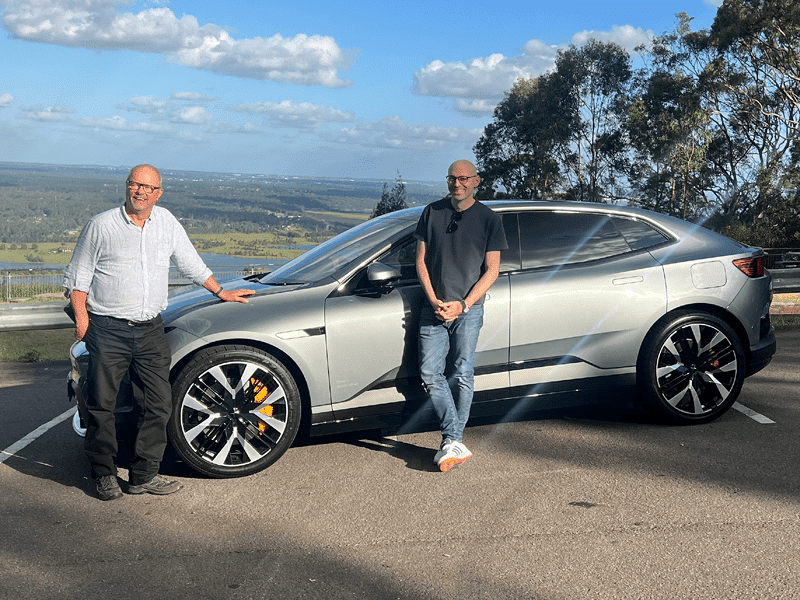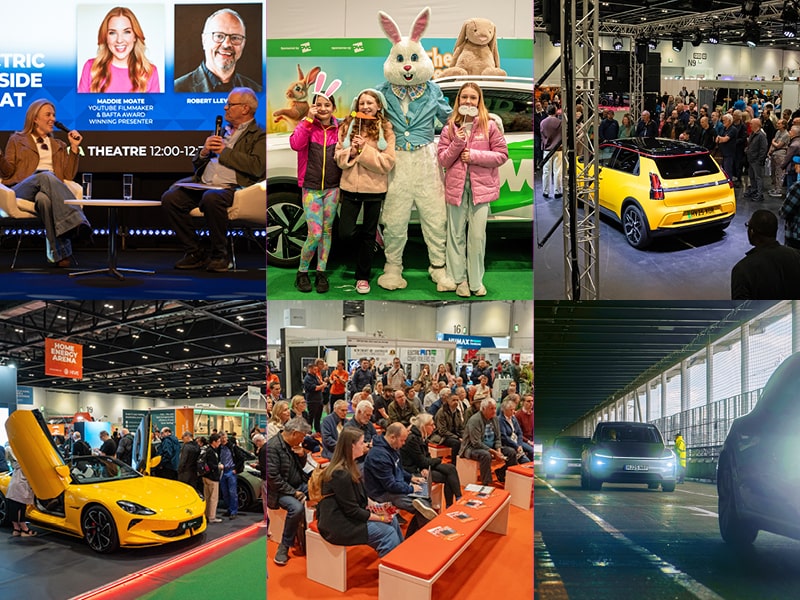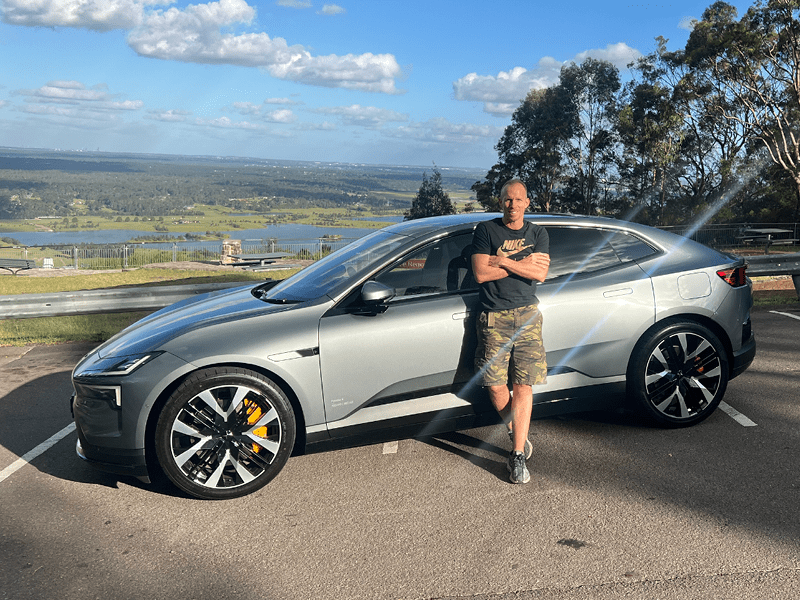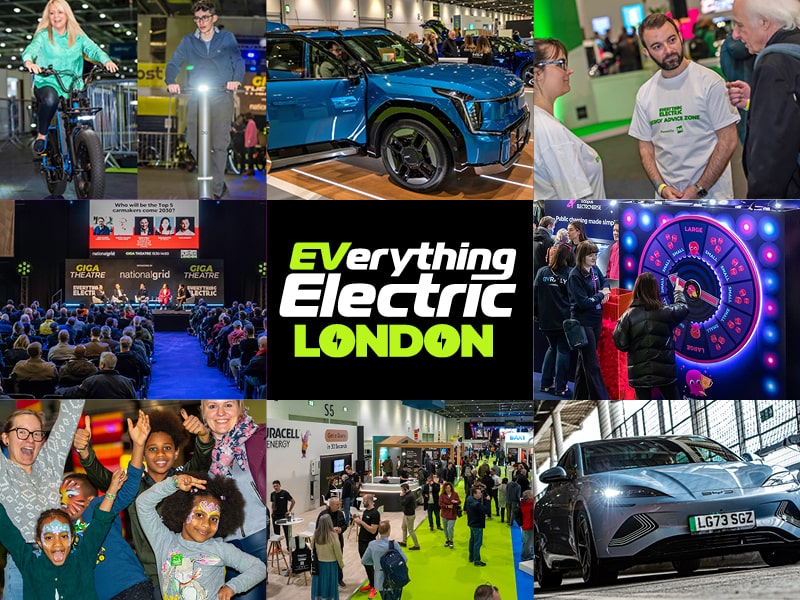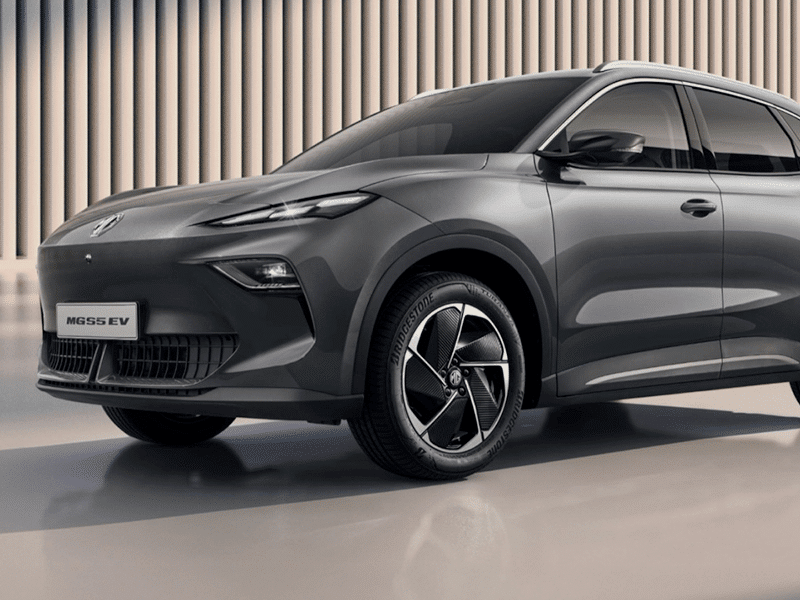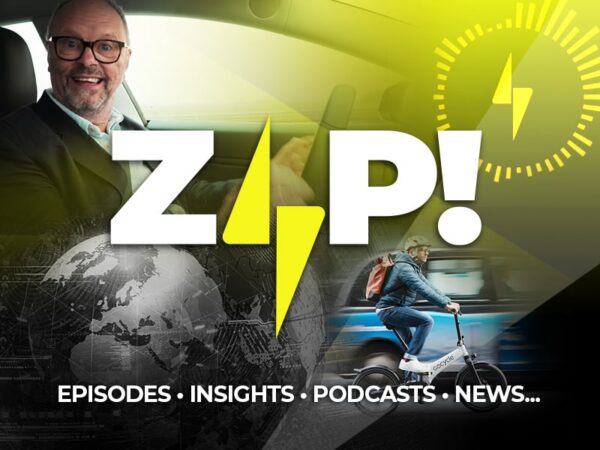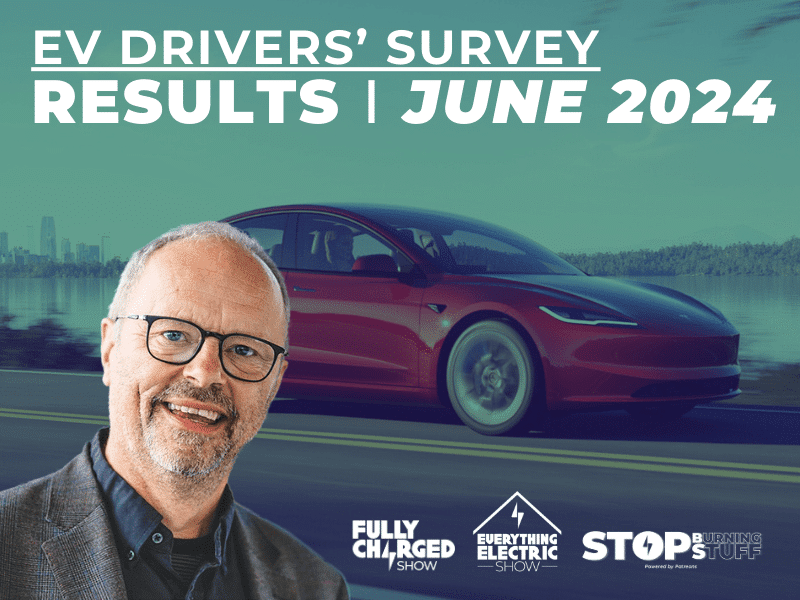
Management Consultants McKinsey, published a report that ‘alleged’ that “29% of electric vehicle owners consider to switch back to a traditional combustion engine car.”
We are using the word ‘alleged’ advisedly, because this flies in the face of the multiple surveys the Fully Charged SHOW has run since 2018, which consistently confirm that the number of battery EV drivers that would return to an ICE car as less than 10%.
This feedback has been echoed in several other surveys run by other reputable parties*:
*Zapmap in October 2023 – “less than 3% would go back to their ICE vehicle”
*EVA England in December 2023 – 91% have “no intention of returning” to an ICE vehicle
Nonetheless, Automotive News eagerly amplified this story and for maximum effect, and zoomed in on the even higher number of US drivers that allegedly said the same – “more than 40% of US EV buyers want to go back to combustion engine cars.”
This story was then gleefully shared by businesses and individuals (that are presumably opposed to battery electric vehicles) on LinkedIn and various platforms.
Curiously though these statistics seemingly contradict a previous version of McKinsey’s own ‘The Road Ahead for E-Mobility‘ research from January 2020, which said “91% of EV owners would choose an EV again in their next purchase”.
It’s worth stating that as impressive as McKinsey’s $15bn+ turnover is, as an organisation it is far from infallible. For example, it has been implicated in scandals with Purdue Pharma, and Enron, as well as in the Financial Crisis of 2007-2008.
After struggling to track down the ‘Mobility Consumer Pulse‘ report itself, we were eventually sent it, and it begs more questions. We have asked McKinsey for the methodology (e.g. does your survey only include pure BEVs or does it also include plug-in hybrids). Naturally, we are not holding our breath.
Rather than sit on our hands though, we immediately mobilised our own survey via our Fully Charged SHOW YouTube channel with no reference to the McKinsey study, and attracted 8,867 responses over just 48 hours.
We’ve crunched the numbers and the results of our survey below should make reassuring reading for industry professionals, and possibly embarrassing reading for those that unquestioningly swallowed McKinsey’s suspect statistics.
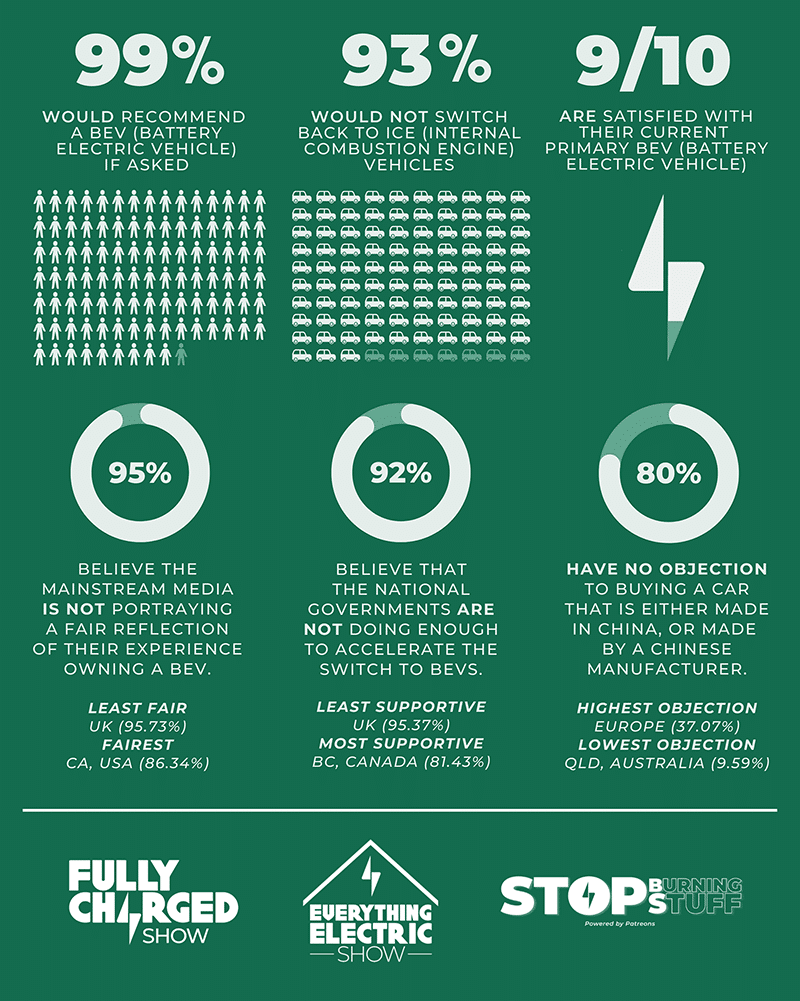
- 8,867 Responses from BEV owners/drivers from the UK, North America, Australia, Europe & the rest of the world
- Age Ranges – Under 18 0.08% | 19-24 0.51% | 25-34 6.04% | 35-44 17.45% | 45-54 26.47% | 55-64 27.27% | 65-74 18.19% | 75 and over 3.99%
- “Out of 10, how satisfied are you with your current primary BEV (battery electric vehicle)?” On average MORE THAN 9 out of 10
- “Would you ever switch back from BEV (battery electric vehicle) to an ICEV (internal combustion engine vehicle)?” NO 93.71%, rising to 95.82% for Tesla drivers, and 97.79% of BEV drivers in Queensland, Australia
- “Would you recommend a BEV (battery electric vehicle) if asked?” YES 99.06%
- “Is the mainstream media portrayal of BEVs (battery electric vehicles) a fair reflection of your lived experience of ‘owning’ one?” NO 95.02%, with the highest percentage in the UK (95.73%) and the lowest percentage in California, USA (86.34%)
- “Do you believe that national governments are doing enough to accelerate the switch to BEVs (battery electric vehicles)?” NO 92.92%, with the highest percentage in the UK (95.37%), and the lowest percentage in British Columbia, Canada (81.43%)
- “Did you ‘buy’ your current primary BEV (battery electric vehicle) through your work/business/company?” YES 18.23%, NO 81.77%
- In what year did you ‘buy’ your first BEV (battery electric vehicle)? 2024 (to June) 15.92% | 2023 29.57% | 2022 22.26% | 2021 14.12% | 2020 7.60% | 2019 5.23% | 2018 or earlier 5.28%
- “Do you have the ability to charge your BEV (battery electric vehicle’ at home?” YES 91.59%, NO 8.41%
- “Has your switch to BEVs (battery electric vehicles) seen you switch away from a brand you historically preferred?” YES 58.80%, NO 41.20%
- “Is the new brand now your preferred brand?” YES 54.60%, NO 45.40%
- Biggest three positively impacted by brand conquests – Tesla 31.4%, KIA 9.1%, Hyundai 8.3% | Biggest three negatively impacted by brand conquests – Toyota -10.4%, VW -8.4%, Ford -7.9%
- “Do you currently ‘own’ more than one BEV (battery EV)?” NO 77.42%, YES x2 20.40%, YES x3 1.60%, YES x4 0.40%, YES x5 0.17%
- “Would you have any objection to ‘buying’ a car that is either made in China, or made by a Chinese manufacturer?” YES 19.89%, NO 80.11% with the highest objection in Europe (37.07%), and the lowest exception in Queensland, Australia (9.59%)
- “Has your ‘ownership’ of a BEV (battery electric vehicle) made you more likely to invest in home energy technology (e.g. solar, battery, electrification of heating/cooling etc)?” YES 86.34%
- Are you aware of our Everything Electric expos? 95.24% | Fully Charged SHOW? 98.42% | Everything Electric SHOW? 85.31% | Stop Burning Stuff campaign 81.84%
For more information on this survey, or accessing our audience, contact us enquiries@fullycharged.show





